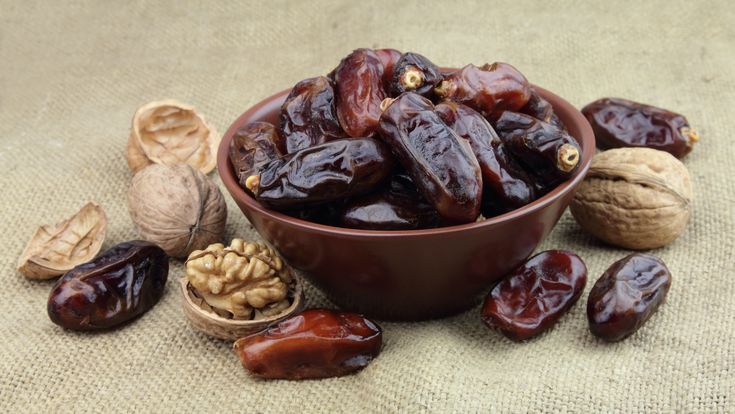Categories
The latest content
-

Customs Clearance & Import Regulations for Bulk Iranian Pinto Beans in EU, Middle East & Africa
..
-

Quality Control & Laboratory Testing Standards for Iranian Pinto Beans
..
-

Logistics & Shipping Solutions for Bulk Iranian Pinto Bean Exports
..
-

Minimum Order Quantity (MOQ) & Bulk Pricing for Iranian Pinto Bean Buyers
..

Tags
Quality Control & Laboratory Testing Standards in Iranian Date Export

The global demand for Iranian dates is growing rapidly, thanks to their exceptional taste, variety, and nutritional value. However, maintaining consistent quality, safety, and compliance is critical for success in international markets. Importers expect not only delicious dates but also assurance that the products meet global food safety regulations. This is where quality control and laboratory testing standards play a key role in Iranian date exports.
Why Quality Control Matters in Iranian Date Exports?
1. Market Trust – Buyers in Europe, North America, and Asia require strict compliance with ISO, HACCP, and organic certifications.
2. Food Safety – Dates must be free from pesticide residues, aflatoxins, and microbial contamination.
3. Shelf Life & Storage – Proper testing ensures dates retain their taste, texture, and appearance during long-distance shipping.
4. Trade Compliance – Failure to meet standards may result in shipment rejections, penalties, or loss of market access.
Key Laboratory Tests for Iranian Dates
Export-ready dates undergo comprehensive laboratory testing to ensure compliance with international standards:
1. Microbiological Analysis
• Tests for yeasts, molds, Salmonella, and E. coli.
• Ensures food safety during bulk storage and retail distribution.
2. Aflatoxin Screening
• Aflatoxins are natural toxins that can develop in dried fruits if not stored properly.
• EU regulations are especially strict about maximum aflatoxin levels.
3. Pesticide Residue Testing
• Dates are tested for residues from farming practices.
• Compliance with Codex Alimentarius, EU MRLs, and FDA guidelines is mandatory.
4. Moisture Content & Water Activity (aw)
• Determines freshness and shelf stability.
• Semi-dry dates like Sayer have longer shelf life than moist types like Mazafati.
5. Nutritional Analysis
• Verification of sugar, fiber, vitamins, and minerals.
• Required for labeling accuracy in global retail packaging.
6. Heavy Metal Detection
• Ensures dates are free from contaminants such as lead, cadmium, or arsenic.
Quality Control Processes in Iranian Date Export
Exporters in Iran follow a step-by-step quality control system to guarantee compliance:
1. Pre-Harvest Monitoring – Farmers are trained in Good Agricultural Practices (GAP) to reduce pesticide use and contamination risks.
2. Sorting & Grading – Dates are categorized based on size, texture, color, and variety.
3. Washing & Sterilization – Ensures removal of dust, insects, and foreign particles.
4. Cold-Chain Management – Particularly important for Mazafati dates, which require refrigerated storage.
5. Packaging Standards – Use of food-grade, tamper-proof, and eco-friendly materials.
6. Third-Party Audits – Many importers request independent lab reports before shipment.
International Standards & Certifications
To compete globally, Iranian date exporters adhere to internationally recognized standards:
• ISO 22000 (Food Safety Management)
• HACCP (Hazard Analysis & Critical Control Points)
• Organic Certification (EU & USDA)
• Halal Certification for Muslim-majority markets
• BRC & IFS Food Safety Standards for European retailers
Meeting these certifications not only ensures compliance but also adds market value and strengthens buyer confidence.
The Role of Packaging & Cold Chain in Quality
Quality control doesn’t end in the laboratory—it extends to logistics and packaging.
• Modified Atmosphere Packaging (MAP): Helps maintain freshness and extend shelf life.
• Cold Chain Systems: Critical for moisture-rich dates like Mazafati.
• Bulk vs. Retail Packaging: Exporters must match packaging styles with target market needs.
Case Studies – Market Expectations
• EU Markets: Extremely strict on aflatoxins, pesticide residues, and labeling accuracy.
• Middle East: Focus on Halal certification, freshness, and sweetness.
• North America: Buyers emphasize organic certification and transparent labeling.
• Africa & Asia: Price-sensitive markets but still demand basic food safety standards.
Key Takeaways for Importers & Exporters
• Quality testing protects brands from shipment rejections and financial losses.
• Moisture content, aflatoxin levels, and pesticide residues are the top concerns in global markets.
• Cold-chain logistics are essential for fresh date varieties like Mazafati.
• Certifications (ISO, HACCP, Organic, Halal) provide competitive advantage.
Final Thoughts
Iranian dates enjoy a world-class reputation, but sustaining that reputation requires rigorous quality control and laboratory testing. Exporters who invest in scientific testing, proper certifications, and modern packaging can expand their global reach while maintaining consumer trust.
At Tamila Agrifood, we prioritize international compliance, laboratory testing, and reliable cold-chain logistics to ensure our clients receive dates that meet the highest standards of safety, quality, and taste.
Email: tamilaagrifood@gmail.com
WhatsApp for Quotations: +989141858935



